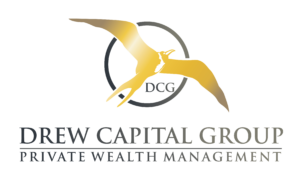
The end of the year is upon us. Here are some tasks to check off before 2023 arrives!
As the year wraps up, it can be a great time to take financial inventory. Your circumstances are constantly changing and evolving, and the proper financial plan is not meant to be a set-it-and-forget-it thing. With the end of the year presenting the perfect chance to revisit your goals, here are a few areas you may want to check in on before we flip the calendar to 2023.
- Review Your Financial Plan
The proper holistic financial plan isn’t just about your investments or your retirement. It also accounts for budgeting to achieve long- and short-term goals, making sure you have adequate insurance to hedge against financial risks, planning for wealth transfer to your heirs and/or charities, looking ahead with a plan to mitigate taxes—really every aspect of your financial life. As the year comes to a close, it can be a great idea to reassess your financial circumstances and make necessary adjustments to your financial plan. Maybe your goals have changed. Maybe you’re on a fast-track toward goals you expected to take longer to reach, so you can move some dates up. Remember, it’s always important to make sure that your beneficiaries are up to date annually on all of your accounts, investments and insurance policies. This time of year, while it’s in the front of your mind, you can use the tools and resources at your disposal to update and to reinvent your financial plan to more closely match your situation.
- Adjust Your Monthly Budget
A budget is an important part of any financial plan, and having one can be a great way to keep track of where your money comes from and where it goes. Now that we’re in the final month of the year, you may be in a good position with a clear vision as you revisit your budget and adjust as needed. Maybe you received a nice annual bonus or raise, or maybe you’ve recently had a baby and haven’t had a chance to fine-tune your budget through the sleepless nights. No matter your circumstances or the new milestones and stages of life you reached in the past 12 months, it can be a really good idea to take a look at how your income keeps up with your expenditures and tweak accordingly.
- Review Your Investments
It’s important to understand that diversifying with different asset classes can help protect your portfolio from market volatility, which is especially important as you get closer to retirement. Most traditional retirement accounts like 401(k)s have funds invested in the market, so they are not protected from market risk. This may be perfectly fine when you’re young, but as we saw with the high inflation, higher interest rates and increased volatility of 2022, it can cause panic for retirees, pre-retirees and people who are risk averse. Be sure that your overall portfolio positions you with a level of risk you’re able to tolerate, and that your retirement is protected.
- Recalibrate Your Retirement Account Contributions [1,2,3]
Your retirement accounts may be your greatest assets when it comes to funding a comfortable and stable lifestyle in retirement. As you traverse your career and attempt to carve out a lifestyle that will be sustainable once you get the chance to quit working and chase your retirement dreams, it’s important to know how much you’re allowed to contribute to your various accounts. For example, in 2022, the contribution limit is $6,000 for traditional and Roth IRA accounts, and it is $20,500 for 401(k)s. In 2023, those limits will increase to $6,500 and $22,500, respectively. If you’re 50 or older, you’ll also be able to make catch-up contributions of up to $1,000 to your IRA and $7,500 to your 401(k) as soon as the new year hits.
- Take Your RMDs [4]
Unfortunately, your retirement accounts cannot be left to grow tax-deferred forever. If you turned 70 after July 1, 2019, you must begin taking annual required minimum distributions, or RMDs, starting at age 72. The amount you must withdraw is typically calculated using life expectancy as determined by the IRS. Failure to adequately withdraw funds will result in a 50% excise tax, which is considerably higher than even the highest federal income tax withholding rate. Luckily, accounts growing tax-free, such as Roth IRAs and Roth 401(k)s do not have RMDs, but the deadline to withdraw the minimum amount from tax-deferred accounts is Dec. 31. If you’ve reached the age at which you must take the distributions, it can be beneficial to ensure that you’ve withdrawn the proper minimum amount from the right accounts to avoid a hefty penalty.
- Spend Money Left in Your FSA [5]
Health savings accounts (HSAs) and flexible spending accounts (FSAs) offer a chance for those with employer benefits to cut medical costs by contributing pre-tax dollars that are allowed to be used for qualifying expenses. Unlike HSAs, however, FSAs do not typically allow you to roll your excess funds into the next year. You may have a grace period provided by your employer, but even the grace period often comes with a limit as to how much can roll over. Some ideas to avoid losing funds left in your FSA include booking general wellness appointments like visits to the eye doctor, annual physicals and dental cleanings.
- Talk to Your Financial Professional or Advisor
The job of a financial professional, planner or advisor is to offer complete and personalized service for your holistic plan. That means assisting you with your unique circumstances and goals, helping you set realistic and reachable objectives while inspiring you to stretch farther and drive harder toward your ideal portrait of a comfortable lifestyle. Whether you’re looking to check off all of these boxes as the year ends or start 2023 with fresh goals, we can help!
If you have any questions about your end-of-year financial checklist, please give us a call. You can reach Drew Capital Management in Tampa, Florida at (813) 820-0069.
Sources:
- https://www.irs.gov/retirement-plans/plan-participant-employee/retirement-topics-ira-contribution-limits
- https://www.irs.gov/retirement-plans/plan-participant-employee/retirement-topics-401k-and-profit-sharing-plan-contribution-limits
- https://www.irs.gov/retirement-plans/plan-participant-employee/retirement-topics-catch-up-contributions
- https://www.irs.gov/retirement-plans/plan-participant-employee/retirement-topics-required-minimum-distributions-rmds
- https://www.goodrx.com/insurance/fsa-hsa/hsa-fsa-roll-over
This material is provided as a courtesy and for educational purposes only. Please consult your investment professional, legal or tax advisor for specific information pertaining to your situation.
All information contained herein is derived from sources deemed to be reliable but cannot be guaranteed. All views/opinions expressed in this newsletter are solely those of the author and do not reflect the views/opinions held by Advisory Services Network, LLC.
Life Insurance
Several factors will affect the cost and availability of life insurance, including age, health, and the type and amount of insurance purchased. Life insurance policies have expenses, including mortality and other charges. If a policy is surrendered prematurely, the policyholder also may pay surrender charges and have income tax implications. You should consider determining whether you are insurable before implementing a strategy involving life insurance. Any guarantees associated with a policy are dependent on the ability of the issuing insurance company to continue making claim payments.
Taxes
Advisory Services Network, LLC does not provide tax advice. The tax information contained herein is general and is not exhaustive by nature. Federal and state laws are complex and constantly changing. You should always consult your own legal or tax professional for information concerning your individual situation.


















